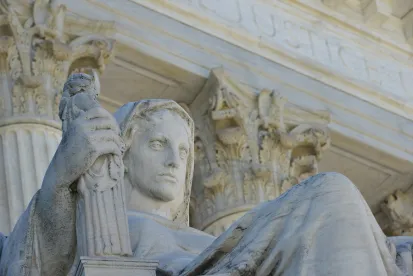Yesterday, the Supreme Court issued its long-awaited decision in Universal Health Services, Inc. v. United States ex rel. Escobar, the most significant False Claims Act (“FCA”) decision of the year. At issue was a theory of liability known as “implied certification,” and whether this theory was valid under the FCA.
The relators (the technical term used to describe private whistleblower plaintiffs in FCA qui tam cases) were Julio Escobar and Carmen Correa, the parents of Yarushka Rivera. Yarushka died after several years of receiving counseling and medication prescriptions from Arbour Counseling Services (“Arbour”), a mental health facility owned and operated by Universal Health Services. The relators alleged that Arbour billed Medicaid for treatment by unlicensed or improperly supervised counselor and nurses, and that by doing so Arbour violated various regulatory requirements of the Medicaid program. The trial court dismissed the relators’ complaint, holding that none of the regulations they relied upon were “conditions of payment.” The United States Court of Appeal for the First Circuit reversed, holding that merely by submitting claims for payment, Arbour had “implicitly” represented that it was in compliance with Medicaid program requirements. The Supreme Court agreed to hear the case because various Courts of Appeal around the country had reached differening conclusions about the viability or scope of this “implied certification” theory of liability under the FCA.
In the Supreme Court, a veritable Who’s Who of the medical industry lined up to ask the Court to reject the theory of implied certification. Amicus curiae (friend of the court) briefs were filed by, among others, the American Medical Association, the American Hospital Association, the Pharmaceutical Research and Manufacturers of America. They were also supported by other industry groups, such as CTIA—The Wireless Association, The Association of Private Sector Colleges and Universities, and the Chamber of Commerce of the United States of America.
In an opinion authored by Justice Thomas, a unanimous Supreme Court rejected the industry-sponsored position, and instead held that “the implied false certification theory can, at least in some circumstances, provide a basis for liability.” In so doing, the Court adopted the common sense approach that when “a defendant makes representations in submitting a claim but omits its violations of statutory, regulatory, or contractual requirements, those omissions can be a basis for liability if they render the defendant’s representations misleading with respect to the goods or services provided.”
The Court also rejected the defendant’s argument (which was also supported by the various industry group amici) that FCA liability should only be imposed on a defendant if the defendant’s violations have been “expressly designated” as “conditions of payment” by the government. In so doing, the Court reasoned that “a statement that misleadingly omits critical facts is a misrepresentation irrespective of whether the other party has expressly signaled the importance of the qualifying information.” Instead of focusing on whether the government had labeled a particular requirement as a “condition of payment,” the Court instructed that the focus should simply be on whether compliance with that requirement was “material” to the government’s decision to pay the claim—a standard already required by the explicit text of the FCA.
Escobar is a significant victory for the government, for American taxpayers, and for the whistleblowers who bring qui tam cases under the FCA. The Supreme Court rejected the hyper-technical distinctions urged by the defendant and its industry allies, and instead properly focused on the relevant question: was the government misled into paying money to a company that hid its own unlawful conduct while simultaneously seeking payments from government-funded programs?
The FCA, and qui tam lawsuits brought by whistleblowers, are an important tool for fighting healthcare fraud, and fraud in other government programs. Whistleblowers who bring qui tam lawsuits are eligible for awards of between 15-30% of the money recovered for the government. Through FCA lawsuits, the government has recovered more than $40 billion for taxpayers, and has paid more than $4 billion in rewards to whistleblowers. The FCA, and its qui tam provisions, is one of the most successful anti-fraud statutes ever enacted, which is precisely why it remains in the cross-hairs of the industries that seek to profit from government programs and government contracts. The Supreme Court did the right thing by standing up for the FCA and for the brave whistleblowers who bring qui tam lawsuits on behalf of their fellow-citizens.




 />i
/>i

